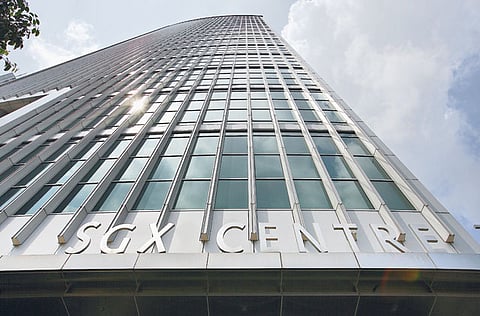Singapore Exchange gets faster
Will introduce world's leading trading system by first quarter 2011

Singapore : Singapore Exchange, operator of the city's derivatives and securities exchange, will introduce the world's fastest trading system by the first quarter of next year, its chief executive said.
"This will put us from the middle of the pack to the leader of the pack," Magnus Bocker, chief executive officer of SGX, said at a media and analyst briefing yesterday. "We hope to attract more high-frequency traders."
The bourse will invest $250 million (Dh918 million) in the new system, which can execute transactions in 90 microseconds, the fastest in the world, according to a company statement. The current system takes between three and five milliseconds to execute trades, Bocker said at a media and analyst briefing yesterday. Nasdaq OMX Group, Bocker's former employer, is supplying the new trading platform. A microsecond is one millionth of a second. A millisecond is one thousandth.
Exchanges worldwide have been building networks in response to competition from alternative trading systems such as dark pools and other off-exchange platforms.
Upgrade
High-frequency trading already accounted for about 30 per cent of business on Singapore's exchange, Bocker said. The current fastest system is run by Nasdaq and takes 177 microseconds to execute trades, according to Bob Caisley, head of technology at Singapore Exchange.
Hong Kong Exchanges & Clearing, operator of Asia's third-biggest stock market, said on May 13 it will upgrade its trading system next year to boost speed and capture capital flows from China. The bourse will roll out a trading system by the end of 2011 that can process 15,000 transactions per second, up from 3,000 transactions per second.
ASX, which runs Australia's largest stock exchange, said in February it will introduce a trading platform that will cut the average time to execute trades to 250 microseconds from three milliseconds. The Tokyo Stock Exchange introduced in January the Arrowhead trading system, which slashed to five milliseconds the time needed to process orders, from two to three seconds previously.


